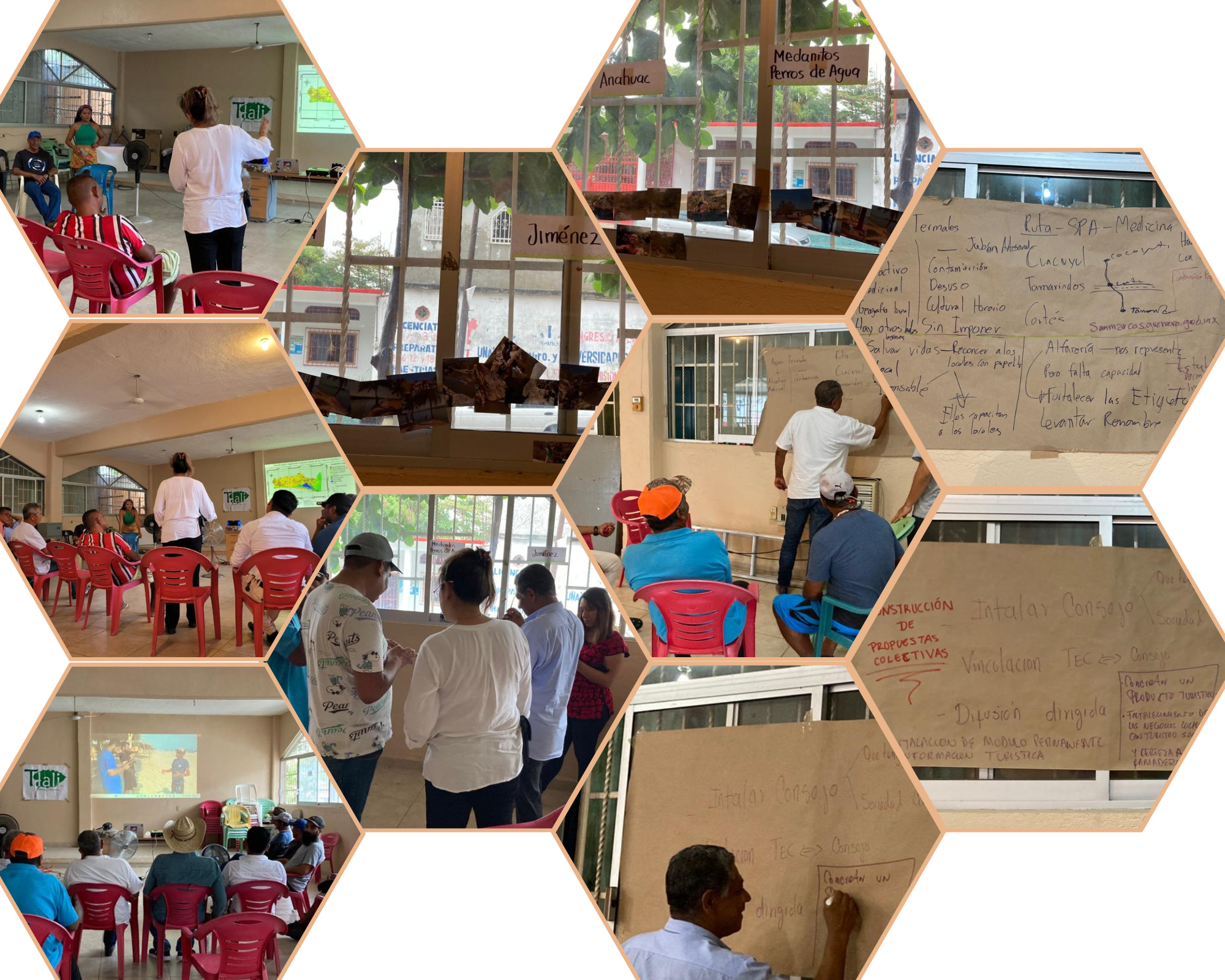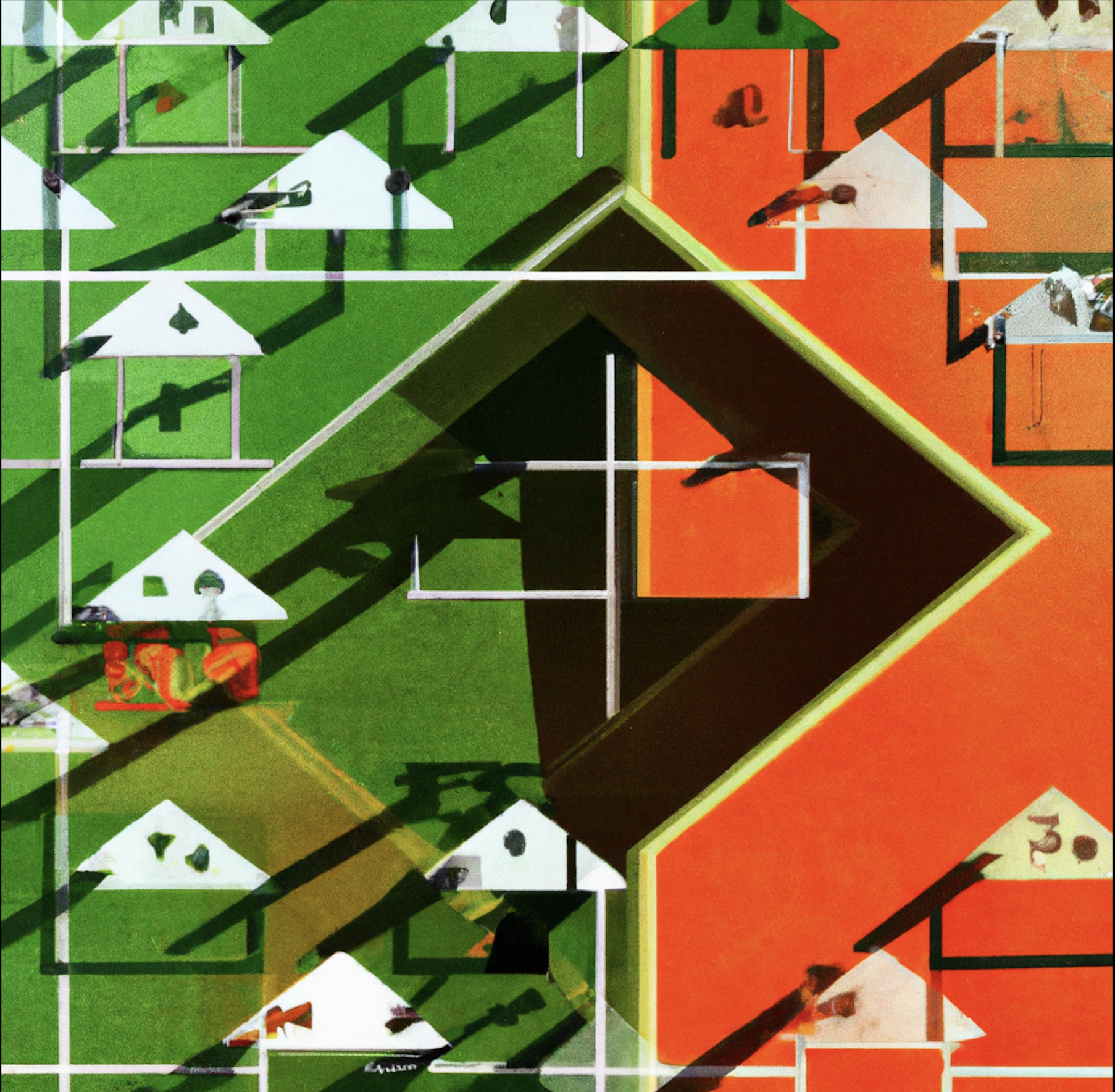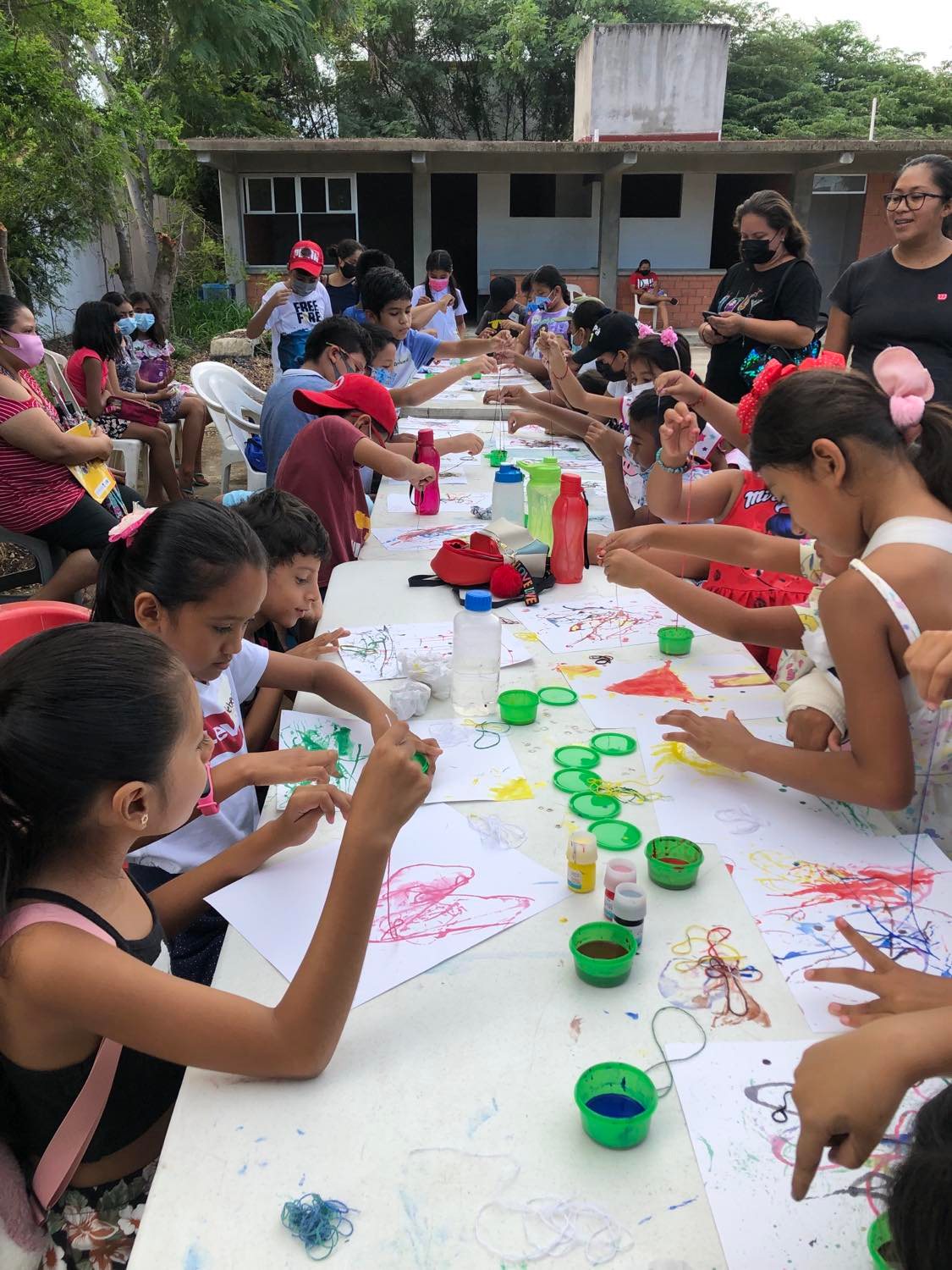by leticia carpio cortes, universidad autónoma de guerrero, jaime matus parada, universidad autónoma metropolitana and lucía santos baca, tlali bienestar y conservación, a.c.
coeditors:
– dr. ulises moreno tabarez;
–dra. dulce maría quintero romero;
–dr. Héctor Becerril;
–dra. rocio lopez velasco
capitalist expansion is an undeniable global phenomenon with far-reaching consequences. in san marcos, this expansion is significantly influenced by the growth of tourism in acapulco. in this blog, we critically examine the multifaceted implications of capitalist growth in the region and reflect on the ways in which the local community can address and adapt to these challenges. through a socioecological lens, we present the preliminary findings of a participatory action research group and offer the perspectives of community members and experts, exploring how these issues intersect.
in the previous blog, i shared how san marcos is being pulled into acapulco’s tourism sector and how building a local tourism proposal can be a response to address it. this sustainable tourism proposal aims to forge a more equitable path for the inhabitants of san marcos by fostering a collective understanding of the region’s trajectory and its potential socio-environmental ramifications. these ramifications include land dispossession, environmental pollution, a spike in violence and the erosion of traditional livelihoods, which collectively affect the quality of life.
this second installment presents an analysis of the socio-ecological diagnosis carried out by the participatory action research group (giap). this diagnosis serves as a fundamental basis for the formulation of a sustainable local tourism proposal. in addition, i incorporate reflections from members of the group, including jaime matus and lucía santos.
unravelling the complexities of a socio-ecological analysis
our socio-ecological diagnosis revealed several crucial components that can be integrated into an alternative tourism model. among them, leveraging kinship and trust to establish professional networks and collective projects that include a gender approach. the region’s persistent local political structure, based on democratic processes and community service, emerged as a key attribute.
However, obstacles abound. chief among them is inadequate social organisation, observable in productive zones and often reactive to erratic welfare policies that are short-sighted in their spatial and temporal scope. several underlying factors contribute to the deficit of collective vision and effort, including limited connectivity, a communication gap between agrarian nuclei and a palpable lack of government responsiveness to social challenges. this is compounded by limited government capacity to foster development beyond localised productive initiatives.
community testimonies shed light on a widespread sense of unease and resignation in the face of pressures to cede their land to the riviera san marcos development:
- “well, there is no other way (…) anyway they say they are going to evict them and they are not going to pay them anything. the investors say they are going to keep the land anyway”.
- “they said they were going to privatise it, that they weren’t going to let anyone in”.
- “when they started they said they were going to pay all those who have land along the road, but they say no more, because they are going to take all that away from us”.
there is also a worrying apathy towards the environmental impact of their activities and a prevailing individualism that undermines community ties:
- “when it comes to environmental issues, they don’t have much knowledge, honestly… but the environmental aspect is never taken into account, it’s always: what am I going to gain? what am I going to get in return? all projects have always been like that, the economic aspect is always taken into account more.”
in addition, community organisation is predominantly associated with receiving government aid, as can be seen from the response to the questions on community meetings and organisation:
-do you organise through assemblies? if yes, how often do you hold them?
“I hold assemblies at the instruction of the chairman or when there is support for the elderly. but support sent by the government, no, it doesn’t come here”.
-what other type of organisation do you have?
“Before, they used to give support to livestock farmers, but they don’t give anything anymore.
on a positive note, the stories also reflect the friendly disposition of the local population towards outsiders, and the importance of festivals and sports in fostering community organisation and cohesion.
in conclusion, the diagnosis identified challenges and opportunities, among which family ties appear to be fundamental to enhancing social organisation. in the last phase of this diagnosis, these attributes are seen to provide vital components for the co-creation of an alternative tourism model anchored in social organisation.
informed solutions: collective elaboration of a socio-ecologically responsible tourism model
in our quest to understand and address the multifaceted challenges facing san marcos, we believe it is imperative to weave together diverse voices that bring different perspectives and experiences. in this section, we, leticia, matus and lucía, present our views and experiences. leticia, one of us, is deeply rooted in the community and offers personal experiences and knowledge that shape the local narrative. matus, a biologist and researcher, advocates for integrating a socioecological approach to development. lucía, a marine biologist, brings the essential perspective of gender equity and human rights. by combining our collective wisdom that embraces local knowledge, socio-ecological integration and gender equity, we unite in our commitment to chart a path towards a more just and sustainable form of development for san marcos and its people. through our different lenses, we hope to shed light on the rich tapestry of challenges and opportunities that lies at the heart of this community.
leticia: towards fairer tourism
at first glance, san marcos looks like a good place to live: most of its people are as warm as its hot springs, and they convey the peace and calm they share with the lagoon and 46 km of secluded beaches. it can be very hostile, particularly now that it has become the most coveted area in the state of guerrero after the tourist projection of riviera san marcos.
once, chatting with don mauro (a sanmarqueño lifeguard and tourist servant), he commented to me “do you think i’d rather walk in the cement mix than ride the waves of the sea?” as he pondered the job offers from investors with interests in el dorado beach, where he swam all his life and worked with his family, before a kidney disease drove him forever from the waves of the sea. don mauro’s question provoked me to ask about the jobs and quality of life that may be lost in the context of the riviera san marcos tourism development, in exchange for precarious jobs that have no sense of life for a coastal fishing, livestock and farming community. on the other hand, tourism developments of this magnitude bring with them severe socio-environmental problems: coastal dunes and mangroves are destroyed and common spaces are privatised to build real estate developments, as happened in tajamar, quintana roo in 2016. as for socio-political impacts, some have already been observed in san marcos: land dispossession and a tendency towards social exclusion (lack of public information about riviera san marcos and lack of integration in decision making).
these questions encourage me, as an academic and local inhabitant, to work on a proposal for alternative tourism from which to generate alternatives and tools so that the local population can choose and build their own development and destiny, in order to contain the social exclusion and environmental depredation that usually characterise large tourist developments.
matus: a factor of a socio-ecological approach
i am jaime, a biologist and research professor at the universidad autónoma metropolitana, specialising in university-society interaction and the social impact of academic research in strengthening community capacities.
sociologist boaventura de sousa santos (2009) has said that there is no global social justice without cognitive justice, that is, without knowledge justice. for the case that concerns this work, one of the knowledge that is a priority is the knowledge that the san marqués population has about and in the territory, that is, the knowledge they have about their assets and the knowledge they have in situ about these assets. to this end, we conducted a socio-ecological diagnosis in eight communities on the coastal strip, which yielded the following results:
we found that cattle ranching is the main economic activity, but this is combined with other activities such as agriculture, fishing and commerce, because it is insufficient on its own. it was observed that the communities have communication within themselves, but there is no communication or relationship between them. it was also observed that the cargo system is still functioning in the costa chica as a democratic system, but it is not functioning successfully due to a welfarist policy as a development policy, to the individual hoarding of resources or by political parties, which are also dividing the communities and their community organisation.
the capacity for agency observed in the san marqueña population is weak, fractured, broken, without identity and restricted. in addition, the lack of agrarian communication does not strengthen this capacity and generates a fragmented vision of reality.
with respect to ecological risks, it is inferred that the risks of modification on the beaches are not so high, but that the bodies of water and the current vegetation would have the greatest impact, even in a matter of months, although it is not easy to infer due to the lack of information. the bodies of water have a landscape regulation and if they are damaged, the landscape will be strongly affected, in addition to affecting the little capacity for agency that the population has.
lucía: mainstreaming gender equality
i am lucía, a marine biologist and spearhead of tlali wellbeing and conservation. with almost a decade of community work on the costa chica of guerrero, focusing on gender and human rights.
tourism, while economically invigorating, casts a long shadow that includes the sinister realities of sex tourism and exploitation. the worst part is borne by women, adolescents and girls from marginalised rural communities, who face different forms of violence.
in these remote communities, poverty, educational deprivation and insufficient basic services compound the lack of avenues for personal and professional growth. the violence these women experience is often manifested in conjunction with class, race and gender, limiting their rights at both the family and community levels.
addressing this requires an alternative tourism approach to san marcos that considers the need to generate sources of employment for women that provide them with economic remuneration but also jobs that are fairer, linked to care for the environment and that strengthen their economic independence.
on 24 June, we presented the results of all the work carried out over the two years of this project and of the socio-ecological diagnosis to key local actors. we shared all the audiovisual material that recovered part of the characteristics and problems identified in the nineteen localities that were visited in total, as well as their biocultural memory, such as the archaeological remains of the Yope people, which were located thanks to the local chronicler Rafael Rodríguez. We then worked on actively listening to their concerns and on the joint construction of the lines of action around the alternative tourism proposal that we are developing. a series of very interesting proposals and findings emerged from this meeting, which will be presented in the next edition of the blog.
References
de souza santos, boaventura (2009). an epistemology of the south: the reinvention of knowledge and social emancipation.





